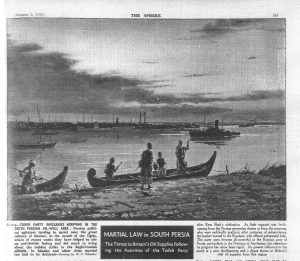The Iran Society, founded in 1935

- This event has passed.
Rowena Abdul Razak : “Laying the foundations of the Cold War: The British and the Tudeh Party of Iran”.
October 16, 2024 @ 7:00 pm - 8:00 pm

At the end of the British-Soviet occupation of Iran in 1945, the Tudeh Party emerged as a prominent political entity. In a relatively short period, its members had risen from obscurity to become members of parliament, cabinet ministers, and trade union leaders. While the war against fascism waged, the British saw the Tudeh as a useful local ally and coordinated with the party to stabilise the occupation. However, as the war reached its end, the British started to view the party as dangerous, a menace and a tool of the Soviet Union. Britain’s position and assets in Iran came under threat as the Tudeh called for nationalisation of oil and aligned itself with the Soviet occupation of Azerbaijan. This talk will show how the Cold War begins in Iran by highlighting the tensions between the British and the Soviets were present from the start of the occupation, and how the Tudeh played an important role in creating those tensions. Propaganda played a key part as well, manipulating opinion and instigating anxieties, especially for the British Empire and London’s position in the post-war global order.
Rowena Abdul Razak is from Kuala Lumpur, Malaysia. She studied at SOAS and King’s College London. She holds a DPhil in Oriental Studies from the University of Oxford. She now lectures on Cold War History at Queen Mary University, London. She started her academic journey with an interest in modern Iranian history. Her doctoral thesis examined the role of Iran’s communist movement within British policy and how this affected labour politics among the country’s oil workers. More recently, she has been developing a research project on the history of Malaysian-Iranian relations.
This lecture is for members only and requires registration.
